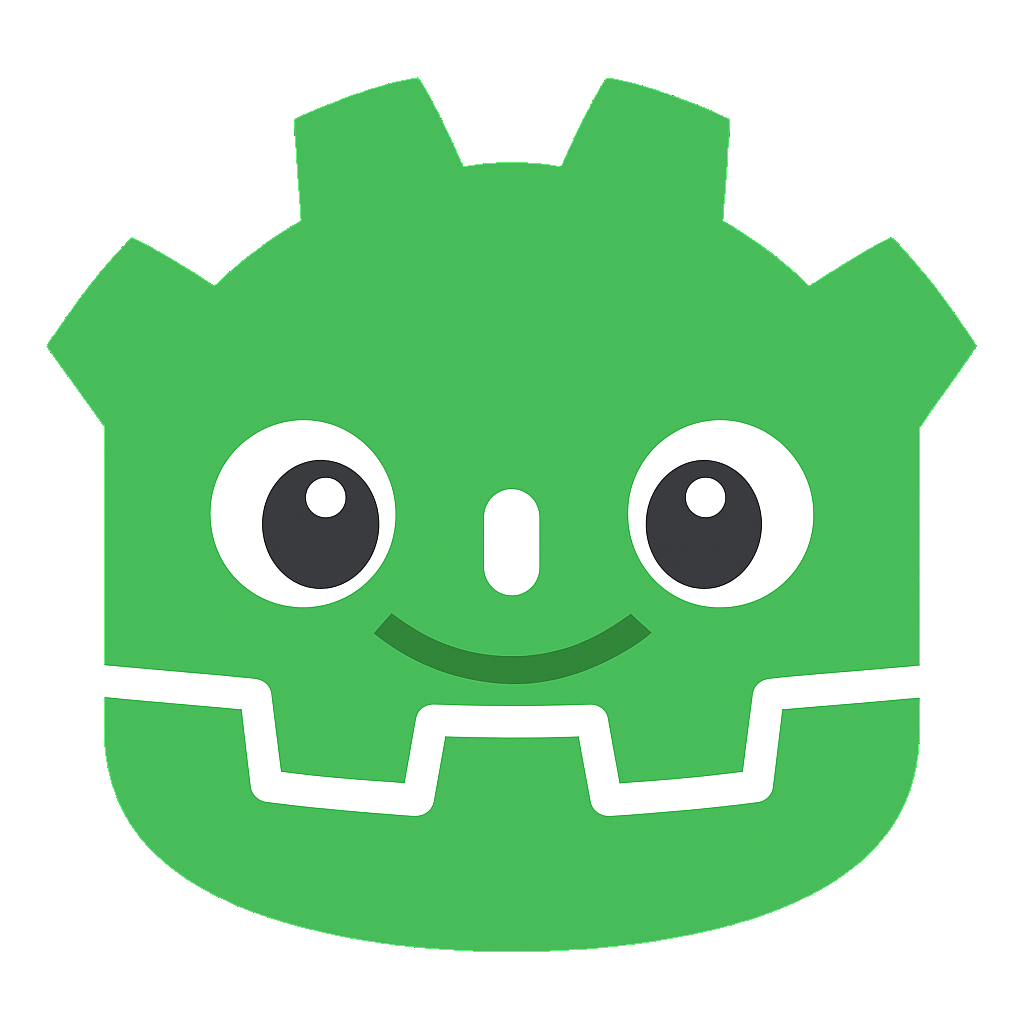Godot What Is A Programming Language?

Programming languages are the tools we use to tell computers what to do. Think of them like recipes - they contain step-by-step instructions that the computer follows to accomplish tasks. When making games with Godot, you'll primarily use GDScript, which is Godot's built-in programming language designed specifically for game development.
What is a Programming Language?
A programming language is a formal way to give instructions to a computer. Just like human languages have grammar rules and vocabulary, programming languages have their own syntax (rules) and keywords that make them work:
- Keywords: Special words that have specific meanings (like "if", "while", "function")
- Syntax: Rules about how to write code correctly
- Logic: Ways to make decisions and control program flow
- Variables: Places to store and manage data
- Functions: Reusable blocks of code that perform specific tasks
Types of Programming Languages
There are many different programming languages, each designed for specific purposes:
High-Level Languages
- Easier to read and write
- More similar to human language
- Examples: Python, GDScript, JavaScript
Low-Level Languages
- Closer to machine code
- More complex but give more control
- Examples: C, C++, Assembly
GDScript in Godot
Godot uses GDScript as its primary programming language. GDScript was created specifically for making games and is:
- Easy to learn for beginners
- Similar to Python in syntax
- Optimized for game development
- Tightly integrated with Godot's features
Here's a simple example of GDScript code:
extends Node2D
var player_health = 100
var player_name = "Hero"
func _ready():
print("Hello, " + player_name + "!")
print("Your health is: " + str(player_health))
func take_damage(amount):
player_health -= amount
if player_health <= 0:
print("Game Over!")
else:
print("Health remaining: " + str(player_health))
Key Programming Concepts
Variables
Variables are containers that store data. In GDScript, you can store different types of information:
var player_score = 0 # Integer
var player_name = "Alice" # String
var is_alive = true # Boolean
var player_position = Vector2(100, 200) # Vector2
Functions
Functions are reusable blocks of code that perform specific tasks:
func calculate_damage(base_damage, weapon_multiplier):
var total_damage = base_damage * weapon_multiplier
return total_damage
func heal_player(amount):
player_health += amount
if player_health > 100:
player_health = 100
Control Flow
Control flow determines which code runs when:
# If statements
if player_health > 50:
print("Player is healthy")
elif player_health > 25:
print("Player is wounded")
else:
print("Player is critical!")
# Loops
for i in range(5):
print("Count: " + str(i))
while player_health > 0:
print("Player is alive")
player_health -= 1
Why Learn Programming for Game Development?
Programming is essential for game development because it allows you to:
- Create Game Logic: Define how your game behaves and responds to player input
- Handle User Input: Respond to keyboard, mouse, or controller actions
- Manage Game State: Track scores, health, levels, and other game data
- Create AI: Make non-player characters behave intelligently
- Optimize Performance: Write efficient code that runs smoothly
- Debug Issues: Find and fix problems in your game
Getting Started with GDScript
If you're new to programming, here are some tips to get started:
- Start Simple: Begin with basic concepts like variables and print statements
- Practice Regularly: Write small programs every day to build your skills
- Read Documentation: Godot's documentation is excellent for learning GDScript
- Experiment: Don't be afraid to try things and see what happens
- Break Down Problems: Complex tasks can be broken into smaller, manageable pieces
Common Programming Patterns in Games
Game Loop
Most games follow a basic loop:
func _process(delta):
# This runs every frame
handle_input()
update_game_state()
render_graphics()
State Management
Games often use states to manage different phases:
enum GameState {MENU, PLAYING, PAUSED, GAME_OVER}
var current_state = GameState.MENU
func change_state(new_state):
current_state = new_state
match current_state:
GameState.MENU:
show_menu()
GameState.PLAYING:
start_game()
GameState.PAUSED:
pause_game()
Learning Resources
To continue learning about programming and GDScript:
- Godot Documentation: https://docs.godotengine.org/
- GDScript Reference: Built into Godot's editor
- Community Forums: Ask questions and learn from others
- Tutorial Projects: Start with simple projects and gradually increase complexity
Conclusion
Programming languages are the foundation of game development, allowing you to bring your creative ideas to life. GDScript makes learning programming accessible for beginners while providing the power needed for complex games.
The key is to start small, practice regularly, and gradually build your understanding. Every game developer started with their first "Hello World" program, and with dedication and practice, you can create amazing games that entertain and inspire others.
Remember, programming is a skill that improves with practice. Don't get discouraged by initial challenges - every programmer faces them. Focus on understanding the concepts, write lots of code, and most importantly, have fun creating your games!